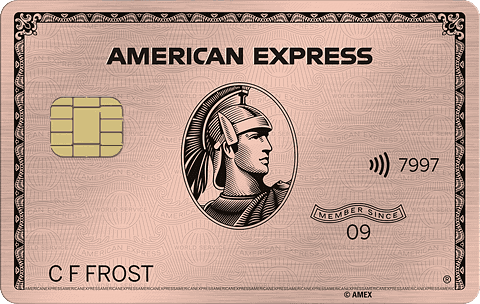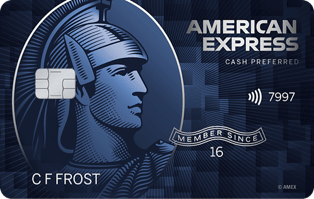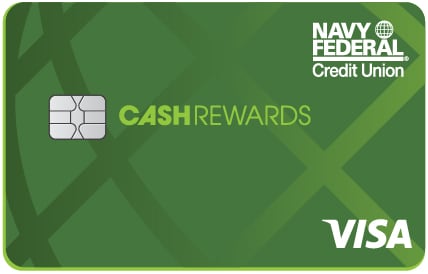- myFICO® Forums
- Types of Credit
- Credit Cards
- Need a good daily driver catch all card...
- Subscribe to RSS Feed
- Mark Topic as New
- Mark Topic as Read
- Float this Topic for Current User
- Bookmark
- Subscribe
- Mute
- Printer Friendly Page
Need a good daily driver catch all card...
Is your credit card giving you the perks you want?
Browse credit cards from a variety of issuers to see if there's a better card for you.
- Mark as New
- Bookmark
- Subscribe
- Mute
- Subscribe to RSS Feed
- Permalink
- Report Inappropriate Content
Re: Need a good daily driver catch all card...
4% on gas, 3 on on dining and travel, 2 on actual Costco shopping and 1 everywhere else.
Despite that it's not a true "catch-all" card, when combined with a 2% cb card, it's a force to be reckoned with, imo.




Current Score:






- Mark as New
- Bookmark
- Subscribe
- Mute
- Subscribe to RSS Feed
- Permalink
- Report Inappropriate Content
Re: Need a good daily driver catch all card...
The Chase Freedom Unlimited gives you 1.5% cash back on most purchases and 3% cash back on dining and drug stores. There is no minimum cash back redemption amount with Chase. If you're looking at just earning cash back with fewest hoops to jump through, the Chase FU offers more cash back opportunity, unless you do the qualifications for the PenFed 2%.
As @Ficoproblems247 also mentioned the Citi Double Cash gives you 2% as well (1% on purchases and another 1% when you pay it off), however you have to put roughly $1,250 spend on the card to earn the minimum $25 cash back redemption (if you don't reach $25, the balance does carry over each month until you earn enough to redeem). You don't have to open any checking account with Citi to get the 2% but it is pretty lackluster as far as features and benefits on the card, no cell phone protection, no bells and whistles etc. I've had the Citi DC card 6 years and ran it as our primary card up until last year, with no complaints. I wasn't looking for perks and bells and whistles, just a cash back card to put everyday purchases on and pay it off, it worked well for that.
EDIT:
@summerterrace one thing I forgot to add in my original reply if you do look into the Citi Doube Cash card, or anyone else who is looking into the Double Cash.
When you redeem the cash back, always deposit the cash back rewards into your checking account, even if you're wanting to apply it to your card balance. Then go back and make a payment from your checking account, the 1% cash back is on payments, not 1% back on statement credits.
Using the redeem as a statement credit, you do leave a little bit of the cash back on the table.
















- Mark as New
- Bookmark
- Subscribe
- Mute
- Subscribe to RSS Feed
- Permalink
- Report Inappropriate Content
Re: Need a good daily driver catch all card...
What is your monthly spend like? Breakdown on categories?
I use the Amex EDP...if your spend is right, with the 50% bonus points after 30 transactions, you'll easily make up the AF plus more. It's been my go to for a few years...works for me.
- Mark as New
- Bookmark
- Subscribe
- Mute
- Subscribe to RSS Feed
- Permalink
- Report Inappropriate Content
Re: Need a good daily driver catch all card...
I know it's not popular because they can be more conservative, but there's also the SDFCU Premium CashBack+ which is another 2% card (flat, no FTF and no minimum amount required to redeem). It comes with a $200 SUB, and no extra checking required (shares/savings account required for membership, though).
- Mark as New
- Bookmark
- Subscribe
- Mute
- Subscribe to RSS Feed
- Permalink
- Report Inappropriate Content
Re: Need a good daily driver catch all card...
Our biggest spend is:
Groceries and catch all categories
Groceries around $800-$900 a month (we buy all household stuff at a supermarket)
Catchall like insurance, cleaning, pet expenses, subscriptions, cell phone, streaming, etc $1500-$2000 a month
- Mark as New
- Bookmark
- Subscribe
- Mute
- Subscribe to RSS Feed
- Permalink
- Report Inappropriate Content
Re: Need a good daily driver catch all card...
@summerterrace wrote:Our biggest spend is:
Groceries and catch all categories
Groceries around $800-$900 a month (we buy all household stuff at a supermarket)
Catchall like insurance, cleaning, pet expenses, subscriptions, cell phone, streaming, etc $1500-$2000 a month
I don't see it mentioned above, but the PayPal MasterCard is another good choice. It was our catch all card until we got the 3% AOD card.
Alliant Credit Union also has a flat no AF 2% card and a flat 2.5% card with a $99 AF. Depending on how much you will spend in a year, the Alliant 2.5% is a good card. I'm a member of Alliant FCU and they send me prequalification offers often, but the AOD card has basically replaced all my 1.5% - 2% cards.
Hover over cards to see limits and usage. Total CL - $608,600. Cash Back and SUBs earned as of 5/31/24- $21,590.43
CU Memberships
Goal Cards:



- Mark as New
- Bookmark
- Subscribe
- Mute
- Subscribe to RSS Feed
- Permalink
- Report Inappropriate Content
Re: Need a good daily driver catch all card...
@JNA1 wrote:
@summerterrace wrote:Our biggest spend is:
Groceries and catch all categories
Groceries around $800-$900 a month (we buy all household stuff at a supermarket)
Catchall like insurance, cleaning, pet expenses, subscriptions, cell phone, streaming, etc $1500-$2000 a month
I don't see it mentioned above, but the PayPal MasterCard is another good choice. It was our catch all card until we got the 3% AOD card.
Alliant Credit Union also has a flat no AF 2% card and a flat 2.5% card with a $99 AF. Depending on how much you will spend in a year, the Alliant 2.5% is a good card. I'm a member of Alliant FCU and they send me prequalification offers often, but the AOD card has basically replaced all my 1.5% - 2% cards.
After the stunt they just pulled and then rescinded with the 33% devaluation of points I myself wouldn't recommend an Alliant card right now.
FICO 8 (EX) 838 (TU) 846 (EQ) 850
FICO 9 (EX) 850 (TU) 850 (EQ) 850
$1M+ club
Artist formerly known as the_old_curmudgeon who was formerly known as coldfusion
- Mark as New
- Bookmark
- Subscribe
- Mute
- Subscribe to RSS Feed
- Permalink
- Report Inappropriate Content
Re: Need a good daily driver catch all card...
@coldfusion wrote:
@JNA1 wrote:
@summerterrace wrote:Our biggest spend is:
Groceries and catch all categories
Groceries around $800-$900 a month (we buy all household stuff at a supermarket)
Catchall like insurance, cleaning, pet expenses, subscriptions, cell phone, streaming, etc $1500-$2000 a month
I don't see it mentioned above, but the PayPal MasterCard is another good choice. It was our catch all card until we got the 3% AOD card.
Alliant Credit Union also has a flat no AF 2% card and a flat 2.5% card with a $99 AF. Depending on how much you will spend in a year, the Alliant 2.5% is a good card. I'm a member of Alliant FCU and they send me prequalification offers often, but the AOD card has basically replaced all my 1.5% - 2% cards.
After the stunt they just pulled and then rescinded with the 33% devaluation of points I myself wouldn't recommend an Alliant card right now.
More and more banks/credit unions are doing this when the rewards they pay out are higher then profits. Or they raise annual fees.
- Mark as New
- Bookmark
- Subscribe
- Mute
- Subscribe to RSS Feed
- Permalink
- Report Inappropriate Content
Re: Need a good daily driver catch all card...
@summerterrace wrote:Chase Freedom Unlimited- 1.5% on everything (have CSP), could do a product change from another card (like the Freedom I don't use)
Just some food for thought - the Freedom Unlimited would give 1.5% back on everything in cash back, but since you have CSP you could also redeem for travel at a 25% bonus, or 1.875% value. If you like the idea of your daily driver occasionally paying for some/all of a trip/vacation, this may be your best bet, even if a 2% card would see a little more. The difference between 1.875% and 2% on $20k in spending is $25 ($375 back vs $400).
Product changing from the Freedom has a few consequences, which may not matter to you at all. First, you lose the chance to earn the SUB on Freedom Unlimited. Second, if you ever did start using your Freedom regularly, you'd be able to add Freedom Flex to double the quarterly cap, while if you product change it you wouldn't be able to get the Freedom back. Obviously this would only matter if you went from not using a card to exceeding its quarterly cap, thus I doubt this would apply to you, but including the info nonetheless.
Cashback
Points
RIP
P2
P2 Future
- Mark as New
- Bookmark
- Subscribe
- Mute
- Subscribe to RSS Feed
- Permalink
- Report Inappropriate Content
Re: Need a good daily driver catch all card...
@summerterrace wrote:Our biggest spend is:
Groceries and catch all categories
Groceries around $800-$900 a month (we buy all household stuff at a supermarket)
Catchall like insurance, cleaning, pet expenses, subscriptions, cell phone, streaming, etc $1500-$2000 a month
Bit of a pivot, but since you're a NFCU member, their More Rewards AmEx could be another option. Using $850 for grocery and $1750 for other monthly, More Rewards would earn $43 in cash back while a 1.5% card would earn $39... though a 2% card would beat both at $52. CFU + CSP would see $48.75 in travel value. Both the More Rewards and the CFU would actually earn more as well, since each would hit some purchases at a bonus, but hard to quantify.
Cashback
Points
RIP
P2
P2 Future